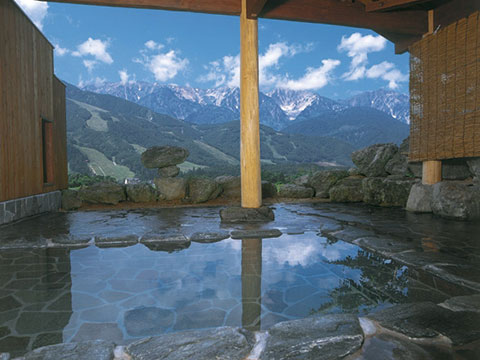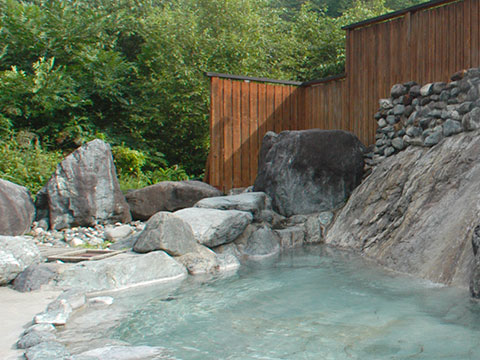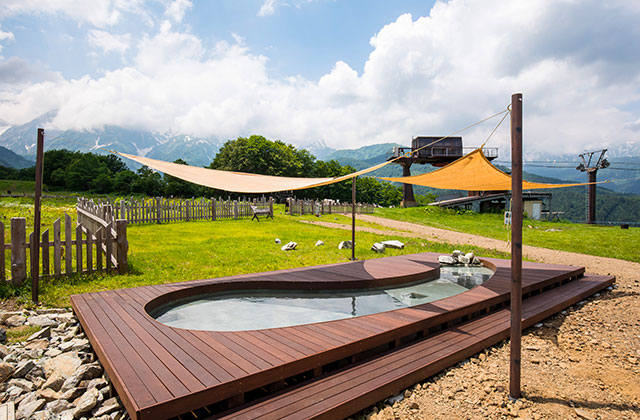History of Hakuba Happo-one’s Hot Spring
Since the area was first settled, the residents of Hakuba Happo-one have dreamt of drawing water from the source of an onsen (hot spring) high up in the mountains down to the village. After a number of failed attempts, it seemed that this dream would turn to reality at the end of the 19th century, but the construction works were overshadowed by a tragic accident.
In the spring of 1875, 60 people started to realize a project to draw down water from the source of the hot spring located at 2,100 m of Mt. Yari. After 2 km of bamboo pipes were already laid, a massive avalanche hit the construction site in November of the same year. Since 21 people lost their lives, the project was put on hold for over a century.
About five decades later, Matsuzawa Teiitsu (1889-1926), a well-respected mountaineer and the founder of the tourist association of Hakuba, established a mountain hut with an adjoining open-air bath near the source of the hot spring Hakuba Yari Onsen. Since then, it has become known as one of the highest outdoor hot spring resorts in Japan and a popular destination for both mountaineers and onsen lovers.
It took another 60 years until a new plan was created to draw water from the hot spring's source. Finally in 1983, the excavation of the source on the south side directly under Hakuba Yari Onsen succeeded. A few years later all the pipes were laid and the concept of turning Hakuba Happo-one into an onsen resort took form. The project transformed the town with dozens of lodging facilities, including hotels, ryokan (Japanese-style inn) and minshuku (Japanese-style guest houses run by families), as well as four public hot spring facilities, which were connected to the hot spring opening. Eventually the century-long wish of the locals was granted.
Now, the little onsen town is popular for the anti-aging effects of its beautifying baths. Due to the strong alkaline hot water with a pH of over 11, bathers find that their skin becomes very smooth and soft. And even more, bathers also claim that the additional health benefits of the onsen water supports the healing process of muscular pain, nerve damage, and more. If you're not comfortable entering an onsen, where you'll usually be expected to bathe naked, you can enjoy the hot water at one of the free foot baths sprinkled across the village.



